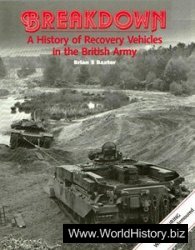Some of the most productive work in archaeological engagement has been in Africa, where archaeologists have worked with and trained a number of local, native scholars. It is the second generation of these native archaeologists who seem to be doing some of the most exciting fieldwork, and who are now documenting the full range of cultures that represent their past. In the May/June 1999 issue of Archaeology, one of these archaeologists, Tereba Togola, talks about ‘‘The Archaeology of the Soul’’, and how archaeology has helped develop an understanding and appreciation for Mali’s heritage. Togola is especially pleased with the surge in local pride in the ancestral past, and the importance of that past in understanding their identity, and in placing themselves in cultural context. Interestingly, the concern is not about ownership of the past.
Historical archaeology has perhaps been the most successful in involving stakeholders in the research process, and in practicing the art of engagement. The reasons for this are more than the obvious fact that historical archaeology represents a more recent past to which people can more easily relate. In a 1998 anniversary issue of Archaeology, Kathleen Deagan outlines a series of contributions that historical archaeology is almost unique in being able to contribute:
1. It gives voice to the disenfranchised of the past (e. g., African-Americans, women), who could not leave a written record.
2. It examines processes of colonization, capitalism, and contact that cannot be examined otherwise.
3. It provides a global perspective.
4. It can document urban processes and landscapes.
5. It raises the possibility that ‘ideas can be studied archaeologically’; that is, that ideology and world view shape the material world at same time as the material world reinforces ideology.
Archaeologists today frequently find that their interests and interpretations conflict with those of other people, and the concerns of the present may conflict with the possible concerns of the future. As ethical considerations matter more and as people care more about the question ‘who owns the past?’ there has been a change in the way the broader public sees archaeologists, and the way archaeologists see themselves. If we follow our ethical principles, the answer to the question is that no one owns the past, and that we all own the past.
Engagement is difficult and time-consuming, and not always rewarding. Even when one thinks everything has gone well, things can fall apart. Educating the public does not mean that people will agree with you or that you have changed minds; educated people often disagree. However, as vitally important as public education is, direct engagement with stakeholders throughout the research process is critical. Things may not work out well, but they likely would have been worse if stakeholders had been ignored.
Archaeologists must try more systematically to practice an engaged archaeology because the work does effect others; there are alternative interpretations and explanations; they need to share their findings, and obligations remain. Archaeologists may or may not lose control, but they gain a perspective that has not yet been fully developed. This is hard, timeconsuming, sometimes unpleasant, and not always successful, work. Not everyone is always in a position to undertake such work, but within a regional framework it is more likely to happen. Archaeologists must be ready to defend their actions, and the hope is that enough respect and trust will have been developed so that people can even respectfully disagree. Hopefully, the answer to the question of ownership will be approached in a way that protects and preserves the past while respecting all sides - we all have an obligation to, and a responsibility for, the past.
See also: Ethical Issues and Responsibilities; Historical Archaeology: Future; Interpretation of Archaeology for the Public; Interpretive Models, Development of; Native American Graves Protection and Repatriation Act; Native Peoples and Archaeology; Politics of Archaeology.




 World History
World History









